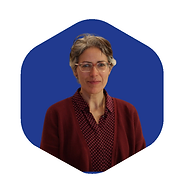A stronger science for a better future
Organisation and workflow
Launched on 1 April 2024, AQUASERV will run for 60 months, ending in 2029. The project is organised into 7 main work packages focusing on project coordination, communication and dissemination, data management, stakeholder engagement, user training, ensuring the future of the network and finally managing access to all integrated services.
To further ensure full transnational and virtual access, we have work packages dedicated to provide access to resources and facilities provided by the different partner institutions. This translates into 27 work packages for transnational access (TA) and 3 for virtual access (VA).
In total, these work packages cover each national node of the three partner ERICs (EMBRC, AnaEE, METROFOOD), the integrating infrastructures of the AQUEXCEL 3.0 community, and the International Fisheries Organisation (integrated in ICES).


Work packages
WP 1 - Project management and coordination
The Centro de Ciências do Mar do Algarve takes on the role of project coordinator, coordinating scientific and administrative tasks, ethical considerations and facilitating information flow between all participants and work packages.
.png)
Adelino Canário
Project coordinator
.png)
Ana Aranda
Project manager

Andreia Pinto
CCMAR
.png)
Anabelle Chaumum
EMBRC
WP 2 - Communication, Dissemination and Outreach Plan
The Centro de Ciências do Mar do Algarve, in collaboration with the European Marine Biological Resource Centre (EMBRC), will present AQUASERV to the scientific community and to project stakeholders, including decision-makers, industry and the public. They will showcase the socio-economic relevance of providing an innovative, integrated, and customised research infrastructure for aquatic research.
WP 3 - Open Science policy, data management and service customisation
The Vlaams Instituut Voor De Zee will support the open science policies, develop customised data management plans and work to improve AQUASERV's virtual service palette, with the overarching goal of: ensuring that our digital outputs are Findable, Accessible, Interoperable and Reusable (FAIR principles).

Katrina Exter
VLIZ

Cymon Cox
CCMAR

Marc Vandeputte
INRAE
Antoine Schoen
LUKE
WP 4 - Engaging with stakeholders and impact
The Institut National de Recherche Pour L'Agriculture, L'alimentation et L’environnment and the Universite Gustave Eiffel will make sure our project reaches our stakeholders, by mapping them in groups, promoting the relevance of experiment research for the industry and society and by measuring our access programme wider impact.
WP 5 - Training of users and research infrastructure staff
The Universidad de Vigo and Universiteit Gent will be working together to train the next generation of researchers on how to make the best use of existing research infrastructures. They'll be coordinating, designing, and delivering training activities that comply with open science standards to potential project users, installation managers and technical staff.

Maria Huete Ortega
UVIGO
.png)
Claudia Delgado
UGENT
.png)
Antti Kause
LUKE

Ibon Cancio
EHU
WP 6 - Sustainability of AQUASERV and future challenges
Luonnonvarakeskus together with Universidad Del Pais Vasco and Euskal Herriko Unibertsitatea will keep an eye on what industry, society, policy, and science need and prioritise, to find the right collaborations and partnerships to meet those needs in the long term. This will keep the AQUASERV’s services fresh, dynamic, and customised, and make our impact last beyond the project .
WP 7 – Access management of customized and integrated services
The European Marine Biological Resource Centre (EMBRC) and the Analysis and experimentation on ecosystems ERIC (AnaEE) will oversee the AQUASERV catalogue of services, from its design and implementation to managing access design and monitoring quality.
Stella Alexandroff
EMBRC
Michel Boer
AnaEE
